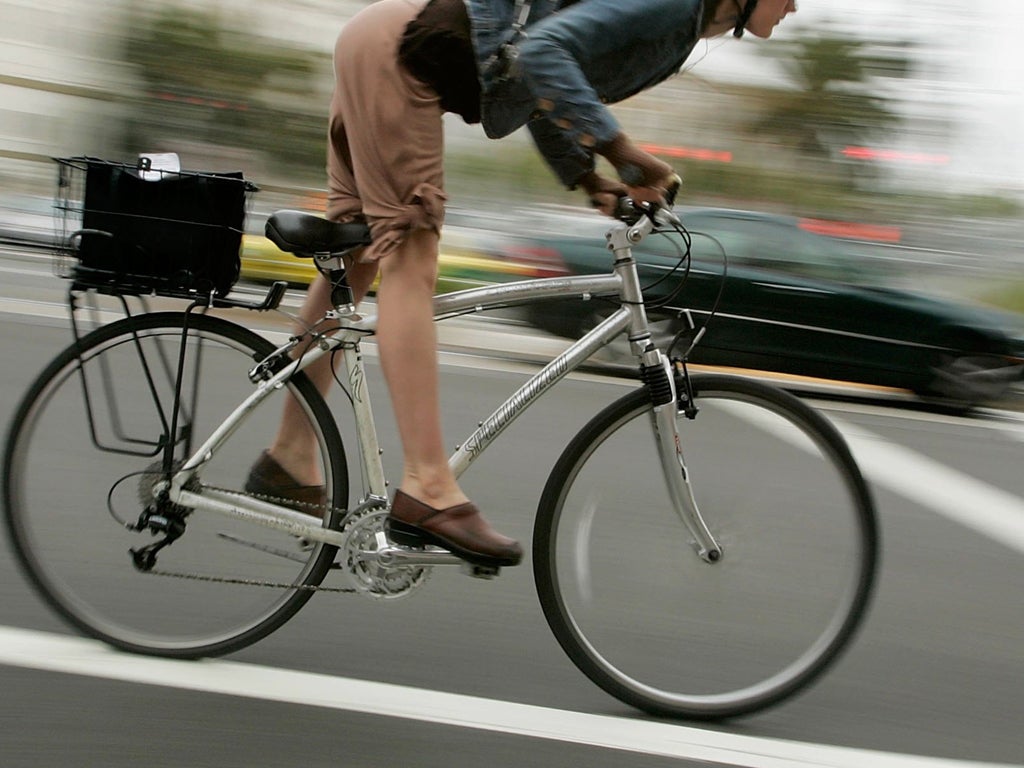Police stopping cyclists is only helpful if they're actually doing something wrong
I had become the latest beneficiary of the Metropolitan Police’s response to a well-publicised concentration of cyclist deaths in the capital

Perhaps if I was blessed with more hair the police officers waiting near Hyde Park Corner might not have noticed I wasn’t wearing a helmet. As it was, I announced my exit from the giant London gyratory with the beacon glint of a naked forehead, and they invited me to stop.
“How do you think you’ll fare if you get run over like this?” one officer asked. No “good morning, we’re here as part of the campaign to improve road safety and wondered if you had two minutes.” More like: “you’ll probably die, but first stand here looking guilty while I have a go at you for doing nothing illegal.”
I had become the latest beneficiary of the Metropolitan Police’s response to a well-publicised concentration of cyclist deaths in the capital. The force deployed more than 650 officers at 60 junctions during rush hours to dispense advice and fines to errant road users.
They were out again this morning, talking to cyclists outside the cinema in Brixton, where I live.
The Met, which plans to expand the operation to include 2,500 officers, would not share statistics with me last night but people stopped at Hyde Park Corner after the morning rush hour yesterday appeared exclusively to be cyclists, none of whom had breached the highway code.
A man who was stopped near Euston taking his children to school in an adapted cargo bike echoed reports from across London that officers did not seem clear about the law.
“This policeman called me over and said ‘is that bike legal?’,” Ben Watson told the Evening Standard. “I thought ‘well you’re the policeman surely you should be telling me whether its legal or not’”.
I told the officer stopping me that only logistics had left me bare-headed. I always wear a helmet, although it’s not the law to do so. He then took issue with my clothes. Not visible enough,” he said. I pointed at the bright sun, suggesting it lent me adequate visibility, thanked him for his advice, and cycled on.
Mike Cavenett at the London Cycling Campaign said (as I also did to the officer) that helmets provide little protection in the kinds of accidents that are of the greatest concern - collisions with lorries. He added: “research also shows that in two-thirds of incidents where fault is attributable, it’s attributable to the driver.”
Danny Williams, a cycling blogger who also sits on the Mayor's Roads Task Force, said patrols could work if they were even-handed and clear about the law, but also risked “reinforcing the impression that cyclists are in the wrong and the stereotype that streets are only for people who drive.”
I agree. A police presence is positive but not if, as I observed, only cyclists are stopped for things that are not illegal. Otherwise it bolsters the impression held by so many road users and would-be cyclists that riders risk imminent death, and are always in the wrong. Stats, meanwhile, show neither thing is true.

Join our commenting forum
Join thought-provoking conversations, follow other Independent readers and see their replies